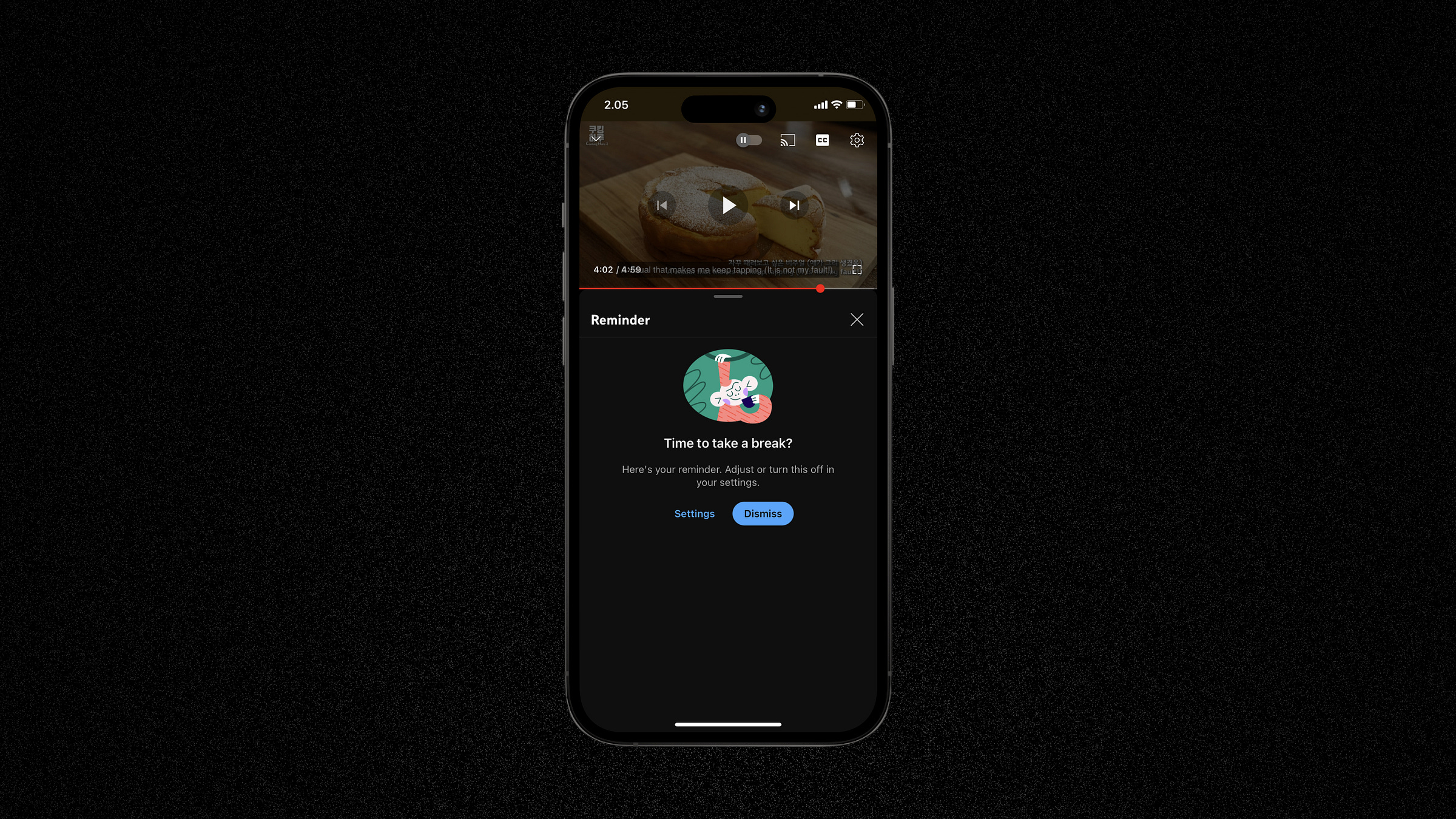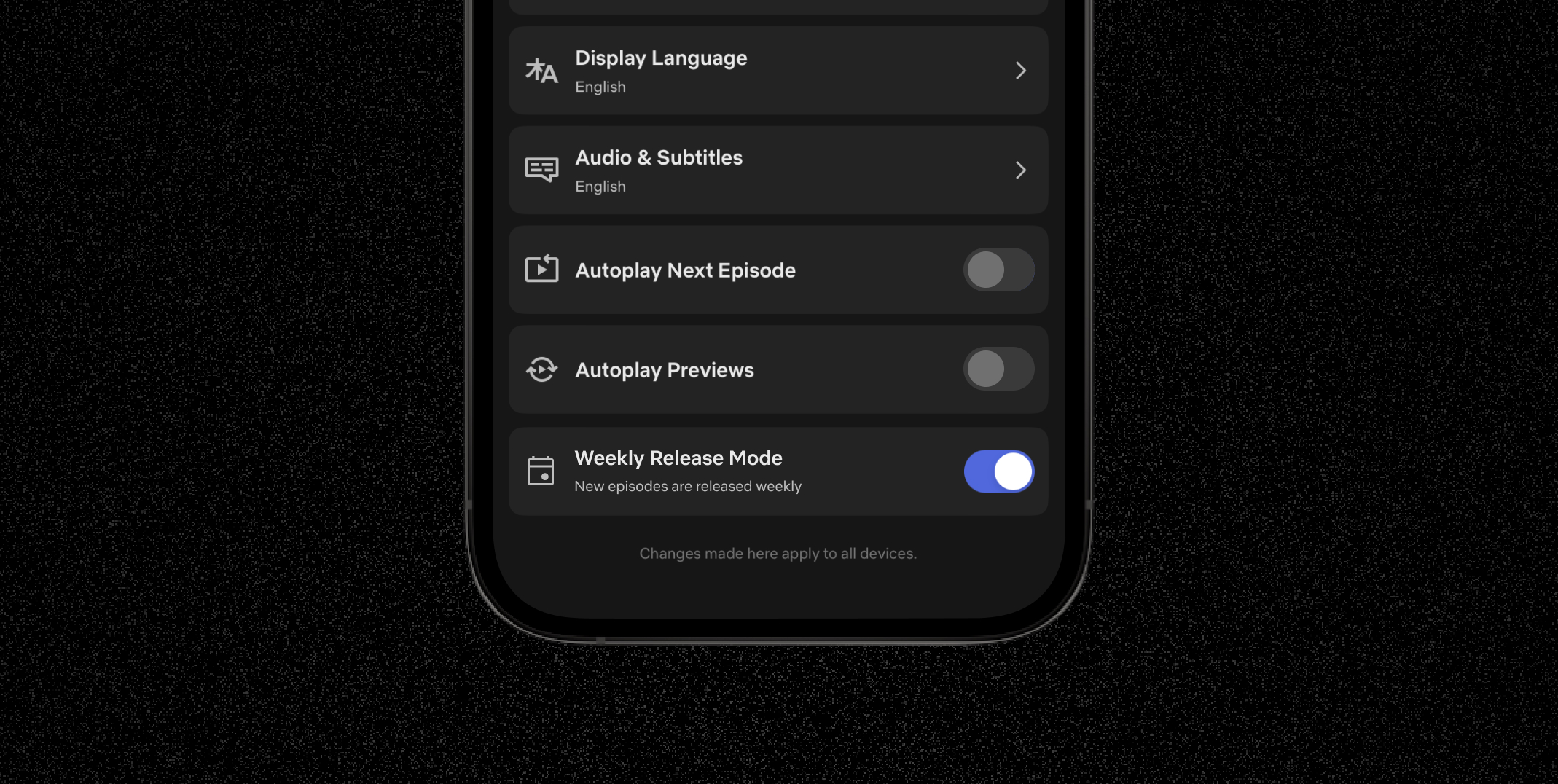Reframing
Sometimes the way to solve a problem isn’t to find the answer right away but to reframe it.
Whenever a new season of my favorite TV show is released, I binge-watch all the episodes in a single weekend. Streaming platforms are changing how we watch television, with thousands of movies and TV shows available anytime. The next episode is just 5 seconds away or a single tap on the "Next Episode" button.
If I think back to when I was a kid, I had to wait a week for a new episode of my favorite show. I remember eagerly anticipating a new episode of Mighty Morphin Power Rangers every week.
Research suggests that watching multiple episodes of your favorite show in a row causes your brain to release dopamine, a chemical that makes you feel happy and excited. This can become a bit like getting addicted to drugs. The more you binge-watch, the more your brain wants you to keep watching—and it's bad for you. Studies have shown that watching a lot of television during middle age is linked to increased memory loss and a decline in motor skills.1
Netflix has a solution for people who don't want to be nudged into watching the next episode. They can turn off the "autoplay next episode" feature in their profile settings. Netflix presents this option neutrally, without making it feel like they are addressing a specific issue.
In comparison, YouTube is very clear about reminding users of their well-being.2
I wonder why Netflix doesn't frame this as a well-being consideration and why they don't take a stance on this matter like Google does. Perhaps it could potentially affect their business since it goes against Netflix's "north star," which measures the time users spend watching. Even the CEO mentioned years ago that Netflix's competition is sleep.3 – and they are also quite aggressive in canceling shows that fail to meet their completion rate target4.
What if Netflix or other streaming platforms wanted to tackle this problem without treating it as a major well-being concern?
How could they reframe the issue in a fun way?
Perhaps a silly idea could be something like a Weekly Release Mode: Enjoy the thrill of anticipation!
Weekly Release Mode lets you savor each episode one at a time, embracing the excitement of waiting and making your watching experience memorable.
That could be a bad idea for Netflix, but here’s the thing:
If you find a problem, you can either keep going to find a solution immediately or stop and consider another point of view. Even if you have a solution, you can still ask yourself and your team if it's the right one: Is this the best approach?
If the answer is no, then you might need to reframe.
Reframing means looking at different perspectives to see if there are new and better ideas. These ideas could be more efficient, more effective, or quicker to implement for the same problem.
Perhaps you have heard of the famous Slow Elevator Problem5. The owner of an office building was receiving complaints about the elevator being very old and moving slowly. This made the people who rented office spaces there unhappy. Some renters were even considering leaving because of this elevator problem. When the owner asked for ideas on how to fix it, they had a few suggestions. Some said to buy a completely new elevator. Others thought that installing a stronger engine might make the elevator move faster.
There's nothing wrong with these solutions.
But let's imagine that getting a new elevator is out of the question, and installing a stronger engine won't be possible anytime soon.
In this situation, we should start looking at the problem from a different perspective. In the story, the owner learned that while the slow elevator was the issue, people essentially hate waiting. It's just frustrating. So the reframed problem becomes: How can he make the long wait time seem shorter and perhaps more enjoyable?
To practice reframing, consider asking questions like, "What if we saw this situation in a completely different way?"
These prompts might be useful for you:
What if this problem were an opportunity? How would I approach it differently?
If I had all the resources I needed, how would my approach to this problem change?
How might someone with a completely different background view this situation?
What if I considered the opposite of my initial solution? How might that lead to a better outcome?
If this problem were a puzzle piece, how might it fit into a larger picture?
What assumptions am I making about this problem? How would things change if those assumptions were invalid?
How could I reframe this challenge to align with the goals and values of a different stakeholder?
Sometimes the way to solve a problem isn’t to find the answer right away but to reframe it.
Here are three ways I can support your growth as a designer:
Check out my Notes on Substack for quick and free tips.
Get my book, "The Practice of Design Practice," to adopt mindsets and practical tips on how designers can engage as lifelong learners.
Get my UI Kit and Design System, Nucleus to level up and accelerate your process. I also share tips, and ideas on Nucleus Substack.
Design Buddy is a free publication supported by readers like you. Subscribe to have my next post delivered directly to your inbox and consider pledging your support to help this independent publication thrive.
Your support makes all the difference. Subscribe and support Design Buddy today!




Great writing as always! And thanks for the prompts, gonna be super useful!